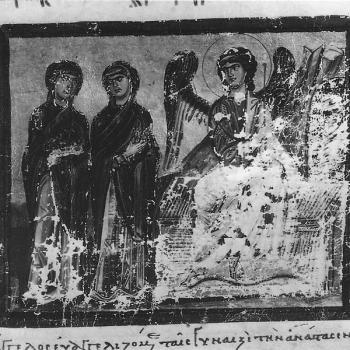Immigration is a hot-button topic worldwide. The displacement of citizens due to war, famine, disease, and political unrest leaves people searching for new land to call home. As news media, talk shows, politicians, and social media rage about the issue, it’s obvious people don’t agree about the issue. Arguing everything from economics, to lack of jobs and housing, to safety and morality, immigration doesn’t appear, at least in modern times, to have an easy answer. This raises the question for Christians: are there immigrants in the Bible?
Discussing the premise of immigration from a Biblical perspective is a different matter entirely. Written in a different culture in a different time, immigrants in the Bible are handled in a manner less political and more hospitable. Hospitality, or the custom of helping visitors or outsiders feel comfortable, was a requirement of many ancient cultures. Hospitality included:
- Taking a visitor (a relative, extended relative, business acquaintance, or someone by recommendation) in one’s house
- Provide food, water and lodging for the duration of their stay
- Offer certain amenities, such as foot-washing
- Travelers accept what they receive and never outstay their welcome
- Failure to act hospitably was seen as an act of hostility

Tests for hospitality are found in a number of Biblical accounts, including the angels’ visit to Abraham (Genesis 18:1-8), Sodom and Gomorrah (Genesis 19:1-21), and Elisha and the widow (2 Kings 8:1-6). Within the harsh desert climate, providing hospitality was often a matter of life or death. An individual’s ability to manage hospitable custom was seen as a gesture of goodwill; failure to do so could result in poor cultural reputation.
In keeping with these concepts, how do we see treatment of immigrants in the Bible – and why does it matter?
The word “immigrant” in the Bible
There isn’t one term for immigrants in the Bible. There are actually four different words with three different meanings. These words often translate as “sojourner” or “wanderer,” “foreigner” and “immigrant,” and “dweller” or “resident.” When trying to sort out meanings, it doesn’t help that the Bible often uses the terms interchangeably. This tells us something very important: whether a traveler, a temporary resident, or someone awaiting full residency, the way believers were to treat foreigners was always the same. While legal status might have made a difference politically (such as in the case of crime or certain legalities), the people of Israel were to treat immigrants the same way they treated anyone else. On four different occasions, Scripture tells us why:
- Do not mistreat or oppress a foreigner, for you were foreigners in Egypt. (Exodus 22:21, NIV)
- Do not oppress a foreigner; you yourselves know how it feels to be foreigners, because you were foreigners in Egypt. (Exodus 23:9, NIV)
- The foreigner residing among you must be treated as your native-born. Love them as yourself, for you were foreigners in Egypt. I am the Lord your God. (Leviticus 19:34, NIV)
- And you are to love those who are foreigners, for you yourselves were foreigners in Egypt. (Deuteronomy 10:19, NIV)
In other words, Israel was to treat foreigners of every sort with hospitable reverence because their history also included living as strangers in a strange land. The Egyptians didn’t treat them hospitably; they enslaved them. The Israelites were not given a divine right to mistreat others; God expected them to learn from their history. Hard times and mistreatment in Egypt were to serve as motivation to treat others well, regardless of who they were.
Immigrant #1: zuwr (Strong’s #2114)
Immigrant #2: geyr (Strong’s #1616)
Often translated as “wanderer” or “sojourner,” geyr refers to a visitor, someone traveling through a country on the way to somewhere else, a temporary inhabitant, a newcomer to a nation, or a foreigner in Israel who lives without full citizenship. Once again, this term is used interchangeably with others (indicating treatment of such should be the same) to describe immigrants in the Bible. The word itself means “to dwell with” or “to dwell among,” indicating such individuals lived in Israel more than a day or two. Travel was arduous, and even if someone was temporarily within a nation – such as passing through on the way to another location or visiting family – they would be in Israel for awhile. Sojourners were to observe the same customs and laws as native citizens (Leviticus 24:22).
The nation of Israel was to do a number of things for the wanderer, including:
- Leave remnants of the harvest for foreigners to collect (Leviticus 23:22, Deuteronomy 24:19)
- Welcome them to celebrate Passover (Numbers 9:14)
- Love them (Deuteronomy 10:19)
- Allow them to select where they want to live (Deuteronomy 23:16)
- Do not deny them justice (Deuteronomy 24:14-15,17)
Immigrant #3: nekhar and nakhriy (Strong’s #5326 and #5327)
- Rachel and Leah raised concern their father regarded them not as heirs, but as “foreigners” (Genesis 31:15)
- Gershom (Moses’ son) literally means “stranger in a strange land” (Exodus 2:22)
- Ruth described herself as a “foreigner” before Boaz (Ruth 2:10)
- Solomon’s many foreign wives (including Moabites, Ammonites, Edomites, Zidonians, and Hittites) (1 Kings 11:1)
- The wives of intermarriage (Ezra 10:10-11)
- Israel’s inheritance (the land) given to foreigners when they fell into captivity (Lamentations 5:2)
- In speaking of the fall of Edom, Obadiah states they will be captives of “strangers” (Obadiah 1:11)
Immigrants in the New Testament
Likewise, early church leaders admonished members to remember the “stranger” among them:
Do not forget to show hospitality to strangers, for by so doing some people have shown hospitality to angels without knowing it. (Hebrews 13:2, NIV)














